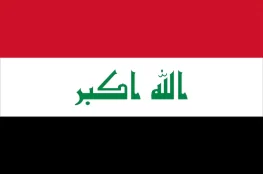
I visited Yemen numerous times over the years as I worked with an NGO there. The little country at the tip of the Arabian peninsula was a mix of starkly beautiful mountains, the old city in Sanaa with its gingerbread architecture, stone villages on hilltops, and ill kept countryside with trash strewn throughout the landscape.
Even at its best one could tell the country was doomed. The greatest long-term concern was its shortage of water. The country could not afford desalinization facilities. They even entertained the idea of towing an iceberg down from the Arctic. And the shortage was compounded by the cultivation of qat ,which required much of the available ground water. Virtually all the populace chews the mildly narcotic plant. Indeed, all the resources of the country were stretched by the population growth rate that exceeded the capacity of the country to support itself. For the time I was there, it appeared the country was on a slow downward spiral.
Then, things got worse. The so-called Arab spring forced then president Abdullah Al-Saleh to resign in 2011. In 2014 civil war developed between Houthi rebels and the new Hadi government. Hadi subsequently set up a Sunni based government in exile in Aden in the south, and the Houthis, a Ziadi/Shia-based group allied with the former president, Al-Saleh, took over the Sanaa area. Because of their fear of a Shia based group on their southern border, Saudi Arabia began bombing Houthi sites. This conflict has led to further disaster in the country with increasing loss of civilian lives and damage to the country’s sad infrastructure. The situation is further complicated by the rise of Al-Qaeda in the Arabian Peninsula (AQAP), a Sunni-based group from southern Yemen.
On the international front, the big concern is whether the overall Yemen conflict is in fact a proxy war between Saudi Arabia backing Sunni elements and Iran backing the Shia groups. Certainly Saudi Arabia has guns in the fight, and as far as news reports are concerned, the Saudis are causing much damage to the country. The role of Iran is less clear.
What can be done? The real question is whether any one cares. The answer is: no one of any importance cares. The conflict in Yemen presently has little effect on our economics or oil supply. The minor concern is that the entry for oil shipping into the Red Sea could be blocked at the Bab Al-Mandab, thus obstructing traffic to and from the Suez Canal, but frankly that result is unlikely.
The Shia/Sunni divide may be the fuel for the conflict, with Saudi and Iran carrying the current torches. The theological, social, and economic differences between the two argue against solution.




October 11, 2019
Hi, very nice website, cheers!
——————————————————
Need cheap and reliable hosting? Our shared plans start at $10 for an year and VPS plans for $6/Mo.
——————————————————
Check here: https://www.good-webhosting.com/
March 4, 2020
very nice publish, i definitely love this web site, carry on it